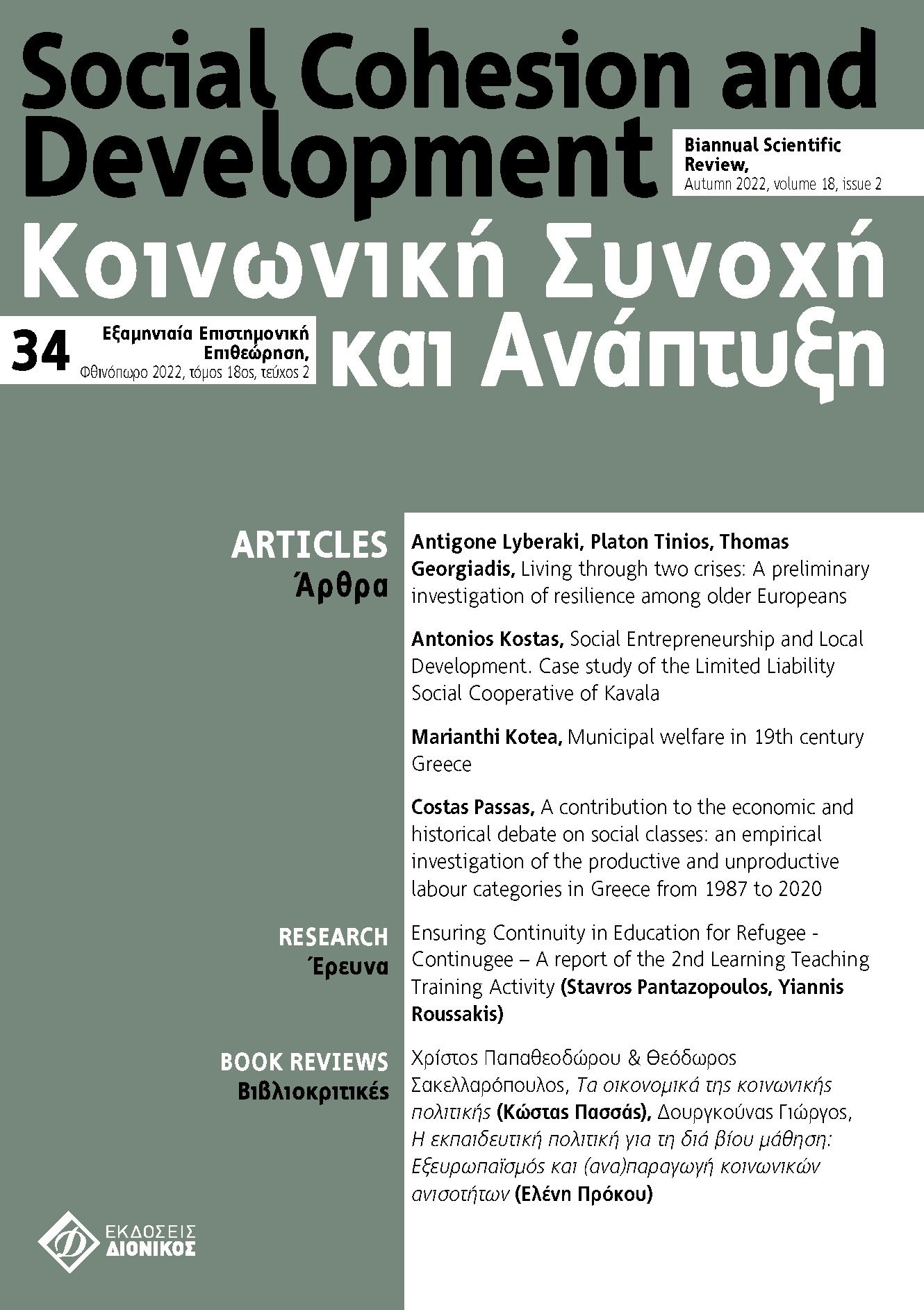A contribution to the economic and historical debate on social classes: an empirical investigation of the productive and unproductive labour categories in Greece from 1987 to 2020

Abstract
The distinction between productive and unproductive
labour, tracing its origins to classical
and Marxian political economy, has been
a source of a long-standing debate in the literature.
In this essay we argue that the proper
definition of productive and unproductive labour
is critical for the empirical estimation of
social classes from a Marxian perspective. In
addition, using the methodological framework
of the classical Marxian tradition we estimate
the categories of productive and unproductive
labour for the Greek economy during the period
spanning the years 1987 to 2020 using
micro-data from the Labour Force Survey and
discuss our results in comparison with other
recent similar studies for Greece
Article Details
- How to Cite
-
Passas, C. (2024). A contribution to the economic and historical debate on social classes: an empirical investigation of the productive and unproductive labour categories in Greece from 1987 to 2020. Social Cohesion and Development, 17(2), 149–172. https://doi.org/10.12681/scad.32250 (Original work published September 1, 2022)
- Section
- Articles

This work is licensed under a Creative Commons Attribution-NonCommercial-ShareAlike 4.0 International License.
Authors who publish with this journal agree to the following terms:
- Authors retain copyright and grant the journal right of first publication with the work simultaneously licensed under a Creative Commons Attribution Non-Commercial License that allows others to share the work with an acknowledgement of the work's authorship and initial publication in this journal.
- Authors are able to enter into separate, additional contractual arrangements for the non-exclusive distribution of the journal's published version of the work (e.g. post it to an institutional repository or publish it in a book), with an acknowledgement of its initial publication in this journal.
- Authors are permitted and encouraged to post their work online (preferably in institutional repositories or on their website) prior to and during the submission process, as it can lead to productive exchanges, as well as earlier and greater citation of published work (See The Effect of Open Access).


